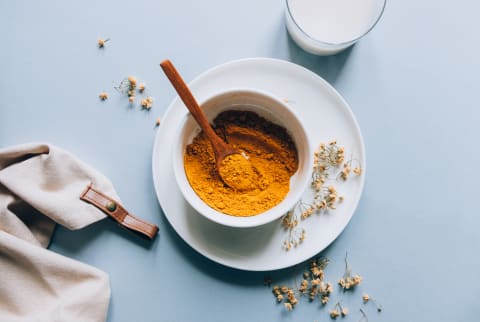Turmeric May Have Antiviral Properties, Researchers Discover


Curcumin (one of the compounds that make up turmeric) may have antiviral properties, according to a new study published in Journal of General Virology today.
Advertisement
Assessing curcumin as an antiviral power.
The study, which conducted the testing on isolated cells, aimed to see if curcumin could fight against infection by a virus known as TGEV, an alpha-group coronavirus that specifically infects pigs.
They found that at high enough doses, the compound was able to kill virus particles before it infected cells. Not only that, but they also saw that in some cases the curcumin would integrate with the virus to render it inactive or even alter the metabolism of the threatened cell to prevent the virus from entering.
"Curcumin has a significant inhibitory effect on TGEV adsorption step and a certain direct inactivation effect, suggesting that curcumin has great potential in the prevention of TGEV infection," says Lilan Xie, lead author of the study and researcher at the Wuhan Institute of Bioengineering, where the study was conducted.
Why curcumin is a popular subject of study.
While the research did not extend to human testing, curcumin has also been shown to inhibit the replication of other viruses such as dengue virus, hepatitis B, and Zika virus. The history of turmeric's use in holistic treatments was part of why it was picked to test.
"There are great difficulties in the prevention and control of viral diseases, especially when there are no effective vaccines," explains Xie. "Traditional Chinese medicine and its active ingredients are ideal screening libraries for antiviral drugs because of their advantages, such as convenient acquisition and low side effects."
Advertisement
What are some other health benefits of curcumin and turmeric?
Turmeric has a long history of benefits and disease-fighting potential. As the active compound in the spice, curcumin is to thank for many of these benefits too, some of which include:
- Fighting inflammation and easing joint pain
- Supporting a healthy immune system
- Improving mood and supporting brain health
Advertisement
While these benefits seem promising, it's important to be mindful of how much you take. "It is estimated that 1,200 to 1,800 mg of curcumin a day is required to see therapeutic effects," says functional food and spice expert Kanchan Koya, Ph.D.
While there are many ways to incorporate turmeric into your routine, including supplements (which may have a higher concentration of curcumin than a powder), many people also enjoy simple solutions like adding golden milk or turmeric tea to their daily routines. However you decide to incorporate it, be sure to pair turmeric with black pepper1 to increase its absorption in the gut.
Advertisement

Eliza Sullivan is an SEO Editor at mindbodygreen, where she writes about food, recipes, and nutrition—among other things. She received a B.S. in journalism and B.A. in english literature with honors from Boston University, and she has previously written for Boston Magazine, TheTaste.ie, and SUITCASE magazine.